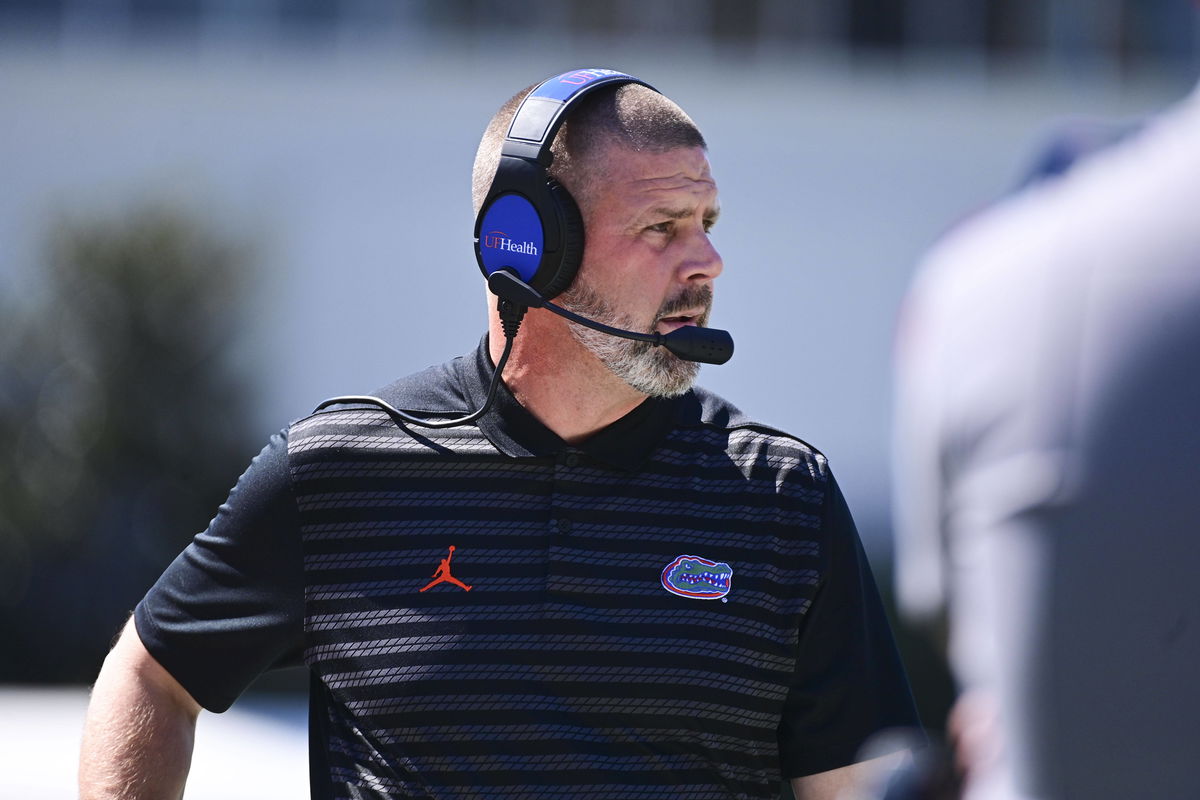
Imago
NCAA, College League, USA Football: Florida at Mississippi State Sep 21, 2024 Starkville, Mississippi, USA Florida Gators head coach Billy Napier stands on the sidelines during the first quarter of a game against the Mississippi State Bulldogs at Davis Wade Stadium at Scott Field. Starkville Davis Wade Stadium at Scott Field Mississippi USA, EDITORIAL USE ONLY PUBLICATIONxINxGERxSUIxAUTxONLY Copyright: xMattxBushx 20240921_gma_mb6_0039

Imago
NCAA, College League, USA Football: Florida at Mississippi State Sep 21, 2024 Starkville, Mississippi, USA Florida Gators head coach Billy Napier stands on the sidelines during the first quarter of a game against the Mississippi State Bulldogs at Davis Wade Stadium at Scott Field. Starkville Davis Wade Stadium at Scott Field Mississippi USA, EDITORIAL USE ONLY PUBLICATIONxINxGERxSUIxAUTxONLY Copyright: xMattxBushx 20240921_gma_mb6_0039
Across the country, big names like James Franklin, Billy Napier, and Sam Pittman have all been cut loose after narrow losses. The pressure isn’t just about wins and losses anymore. With NIL collectives, the transfer portal, and now revenue sharing, the sport’s entire power structure is shifting. The 2025 season has turned into less of a championship chase and more of a weekly fight for survival among head coaches. Now, after a 5–2 start, appearing on The Paul Finebaum Show, Brian Kelly acknowledged just how fine the margins have become.
Watch What’s Trending Now!
“So, you know, you have to go and make sure that you cover everything with your football team. Every detail matters because it’s going to come down to those fine details at the end of the game,” he said. That obsessive attention to detail feels warranted. Kelly is just 5–10 against ranked opponents, and after the upset loss to Vanderbilt, he risks joining the growing list of SEC coaches shown the door. Yet Kelly insists the chaos surrounding college football isn’t only destructive he sees signs of progress in how programs are adjusting to the new model.
ADVERTISEMENT
Earlier this season, Kelly praised the introduction of revenue sharing as a stabilizing force in a sport otherwise spinning out of balance. “It’s the first step. We’re not at the end,” he said. “I’ve listened to some of our brothers over in the Big 12 complaining about where we’re at. I don’t think you should be complaining about anything. “I think we have some guardrails, we have some direction. Revenue sharing helps that”
In the Finebaum show, he further continued, “Look, Indiana is number two in the country. Texas Tech was a top ten team. Vanderbilt’s a legitimate top ten team. Teams understand that now, with the opportunity to revenue share, you can strengthen your rosters.” He added, “look that’s not to minimize the fact that you can’t have traditional programs that are developing their players through recruiting, but it [revenue sharing] has added more to the mix.”
ADVERTISEMENT
Kelly’s point is simple, revenue sharing is shrinking the gap between the sport’s blue bloods and the rest of the field. The numbers back him up. In 2007, long remembered as one of the wildest seasons ever, the top-10 teams combined for a 77.6 percent win rate. This year, that figure has dipped to 75.4 percent. It isn’t because elite programs have regressed; it’s because the rest have caught up.
ADVERTISEMENT

ADVERTISEMENT
“That’s why you look across the SEC and you see all these games from Texas to Kentucky to Vanderbilt, LSU, they’re all tightly contested games, and it has a lot to do with what we’re dealing with today.” Programs once dismissed as afterthoughts are now legitimate contenders. Vanderbilt, winless against Alabama for four decades, has already taken down LSU and South Carolina this year. Indiana has surged under Curt Cignetti, pulling off major upsets against Oregon and Illinois by combining smart NIL use with aggressive transfer-portal strategy.
What’s more shocking is that teams like Texas, Penn State, Clemson, and Notre Dame, which are usually strong, have lost a combined 16-10 games so far and are not even in the top 10 list after week 8. Teams like Vanderbilt and Georgia Tech are now making the top mark.
ADVERTISEMENT
Now, is it that easy to survive in this ongoing chaos? No, you always have to be on top of your game or else the program always has more money to bring in a better suit.
Brian Kelly’s buyout saves his fate
If LSU loses another game, this might be their 4th year without a playoff berth. That’s exactly why losing against Vanderbilt started a “fire Kelly” rant across the Tigers nation. But looking at Kelly’s hefty buyout, that might not be the case. Back in 2021, he signed a 10-year contract with them, making $9.4 million this season now, with 6 years remaining. If LSU fires him, they need to pay him $58.2 million, which goes until 2031.
ADVERTISEMENT
On top of that, as per his buyout, 90% of his salary will be paid through his remaining contract, which makes it $52.3 million if the team lets him go this year. And that’s a massive amount. Just like Luke Fickell, who’s at 2-5 and 0-4 in the Big Ten this season, but the fact that if the Wisconsin Badgers decided to fire him, they would have to pay him $25 million, which is saving him.
The same goes for Mike Norvell, whose buyout sits at $60 million, making it hard for FSU to part ways with him despite a 2-10 season last year and a 5-14 record with the team. Now, it all depends on the LSU game against Texas A&M, who’s yet to lose a single game this season. Because if they lose against them, it might cost Kelly more than playoffs this time.
ADVERTISEMENT
ADVERTISEMENT
ADVERTISEMENT
ADVERTISEMENT
.png)
.png)
.png)



